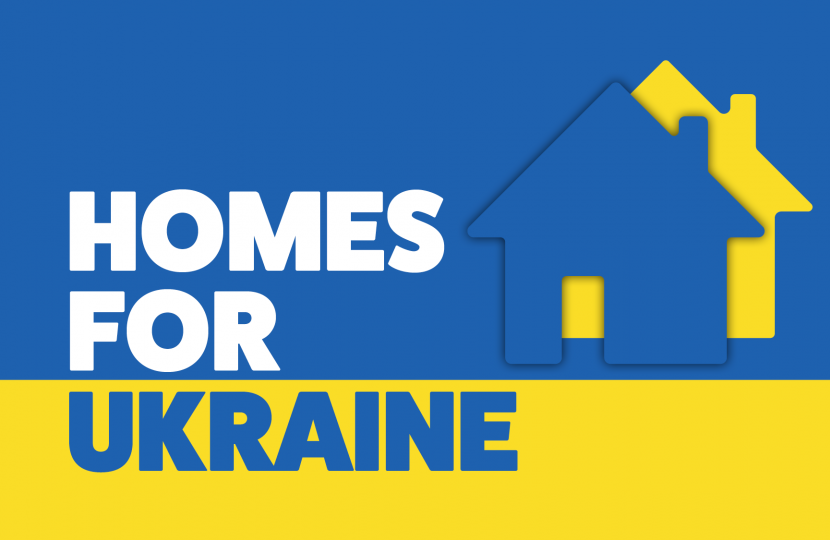
So far, over 130,000 people across the country have registered with Homes for Ukraine. There is no limit to the number of Ukrainians who can come to the UK under this scheme. Ukrainians welcomed under the scheme will be eligible to work, access state benefits and public services for three years.
Sponsor requirements:
- Sponsors can be of any nationality, with any immigration status, provided they have at least six months’ leave to remain within the UK.
- In the first phase of the scheme, sponsors will need to have a named person who they wish to sponsor. This could be a friend, or friend of a friend, someone they are already connected with, or it could be someone they have been linked with by a charity, faith group or other organisation.
- Sponsors are required to provide accommodation for a minimum of six months and payments of £350 per month are available to households for up to 12 months.
- Sponsors should not charge rent and are not expected to cover the costs of food and living expenses.
Support for Local Authorities:
- Local authorities will receive a substantial level of funding at a rate of £10,500 per person, with more funding available for children of school age.
- I have written to the Department for Levelling Up, Housing & Communities to seek clarity on how local authorities will be supported with the provision of health services and schooling, councils’ role in the matching process and safeguarding.
Donations:
- The Government strongly recommends that organisations and people who would like to help donate cash rather than donating goods, through the Disasters and Emergencies Committee campaign and other trusted charities and humanitarian aid organisations. Cash can be transferred quickly to areas where it’s needed, and individuals and aid organisations can use it to buy what’s most needed.
- The Government will match donations to the Disasters and Emergencies Committee campaign up to £25 million. Over £150 million has already been raised.
- Donating goods, while well-intentioned, can obstruct supply chains and delay more urgent life-saving assistance from getting through.
Humanitarian Aid:
- Financial: The UK has already provided £220 million of humanitarian assistance to save lives, protect vulnerable people inside Ukraine and in neighbouring countries. This is in addition to £174 million economic support package for Ukraine and £74 million through the World Bank. We are guaranteeing up to $1 billion of Ukrainian Development Bank financing.
- Customs checks for humanitarian aid have been eased.
- 700 British soldiers have been deployed to Poland to bolster the country’s defence and support Ukrainian refugees crossing the border.
- 4 million medical items from the UK have been delivered to Ukraine so far, with additional emergency flights scheduled. 21 Ukrainian children with cancer have been brought to the UK for urgent treatment.
- An Emergency Medical assessment Team from the UK is working in Romania and Moldova. Work is underway to deploy further medical units in Moldova. A UK team of humanitarian experts are operating in Poland, Moldova and Romania.
- 500 portable generators and spare parts will be sent to the country to support access to power for thousands of essential services in Ukraine, including hospitals and shelters.
Refugees:
- Those who have a Ukrainian passport will be able to come to the UK without having to visit a Visa Application Centre to conduct biometric checks.
- The number of appointments across Europe have been increased sixfold on the usual capacity, with new 24/7 helplines and an extra 100 staff.
- Opened a pop-up application centre in Rzeszow and a new visa processing centre in Lille – alongside additional support to Calais for those people who are already there.
- As of 21 April over 32,500 Ukraine Family Scheme visas have been issued and a further 39,300 have been issued under the Homes for Ukraine programme.
Military Support:
- UK has provided £350 million in military aid to Ukraine. This includes over 10,000 missiles, anti-tank weapons, and air defence systems, as well as rations, medical equipment and other non-lethal military aid, with supplies continuing to increase.
- £25 million has also been provided to the Ukrainian military for them to pay soldiers’ wages and buy equipment.
- We supplied Ukraine with defensive equipment to complement Operation Orbital training and build on the £2.2 million of non-lethal equipment provided since 2015.
- 22,000 Ukrainian troops have also been trained by the UK.
Russian Sanctions:
- The assets of all Russian banks have been frozen, blocking their access to Sterling and their ability to clear payments through the UK. Russian companies have been prevented from borrowing on UK markets.
- The export of technical equipment to Russia in key sectors, such as electronics, telecommunications and aerospace, has been banned.
- Russian aircraft have been banned from flying in the UK’s airspace.
- The Economic Crime Act will also crack down on dirty Russian money in the UK.
- A new Register of Overseas Entities will require all foreign owners of UK property to reveal their identities to tackle money laundering.
- New powers will be introduced to strengthen Unexplained Wealth Orders to allow law enforcement agencies to take more effective action against corrupt elites and criminals.
- Changes will be made to the sanctions regime, making it easier for the Government to impose and enforce more effective sanctions.
- So far, over 1000 individuals and entities have been sanctioned, including Roman Abramovich, owner of Chelsea FC.
Resources:
- https://donation.dec.org.uk/ukraine-humanitarian-appeal
- https://homesforukraine.campaign.gov.uk/
- https://www.gov.uk/guidance/apply-for-a-ukraine-family-scheme-visa
- https://www.roomforrefugees.com/
- https://www.refugeesathome.org/
- Anyone requiring an emergency travel document can do so here: https://www.gov.uk/emergency-travel-document
- Family members of British nationals in Ukraine who wish to apply to the Ukraine Family Scheme should call the 24/7 free helpline +44 808 164 8810 (0808 164 8810 if you’re in the UK) and can access further information here: https://www.gov.uk/guidance/support-for-family-members-of-british-nationals-in-ukraine-and-ukrainian-nationals-in-ukraine-and-the-uk.

